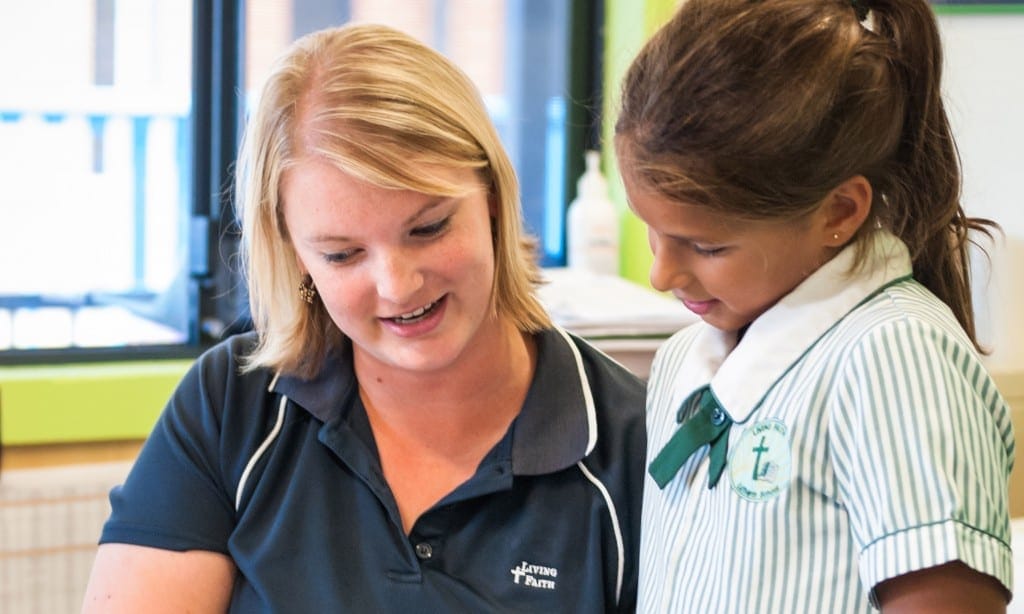Every parent can and needs to be an advocate for their child at different times. It is vital and so necessary. For the parent of a child with special needs, advocating for their child can present additional challenges. We spoke to Cheryl Weatherill Learning Support Coordinator Living Faith Lutheran Primary School about Special Needs Help.
Develop Positive Relationships with the Teachers and School
The first step is to establish a positive relationship with your child’s class teacher and special needs or learning support teacher. They are there to help you and their desire is to meet your child’s needs as they journey through the school years. Initially establishing a positive relationship with the teacher will make it easier to approach them when challenges arise. Just as you want and need to hear positive comments about their child so teachers need to hear positive feedback about what they are doing. It is essential to view the parent-teacher relationship as a partnership, knowing that both parties have the desire for the child to reach potential and develop the skills required to flourish beyond the schooling years.
Plan Ahead for School Events
Be proactive and plan ahead for your child’s needs. If you know that something in the school calendar or a type of learning activity that is coming up may present challenges for your child, approach the teacher and discuss the needs before the event. This will enable steps to be put into place to reduce negative experiences. It also enables your child to get the most from the learning experience.
Keep Communicating
Usually children’s needs change over time so communicate these changes with the teacher allowing them to adjust what they do with your child. Temple Grandin wrote, “There needs to be a lot more emphasis on what a child can do instead of what they cannot do.”
When a challenge arises, in most circumstances it is best to approach the class teacher and special needs teacher first, rather than progressing to the principal. This helps to build trust and lets the teacher know that you want to partner with them – to work alongside them – to resolve any concerns. Approach the teacher sooner rather than later. This allows strategies and actions to be used which may reduce the problem from escalating. Sometimes teachers may not be aware that there is a difficulty and a minor change at school can significantly reduce the problem (whether it presents at home or school). Often children do not tell staff of their problems and by keeping teachers informed many difficulties can be reduced or avoided.
Try and Try Again
Sometimes the first steps that are taken to solve a challenge or difficulty may not be successful. It is not necessarily that the ideas and strategies were not appropriate but they did not work for your child. With the teacher, review what has happened, and develop the next step to try. Occasionally this may happen several times before the best plan is developed.
Communication is important whether by email, note, communication book or meeting. IEP (Individual Education Plan) or Support Plan meetings are an important face to face opportunity to ask questions and plan ahead for your child’s needs. Prepare for these meetings by writing a list of points to cover, so that precise needs that you have can be discussed.
Keep Track of Communication
Create a folder that has all the reports and information about your child. This folder is particularly helpful when first approaching a school for enrolment. This includes writing down the questions before you meet with doctors, therapists and teachers. Having the questions or points written down means they are not forgotten. It is often helpful to start the list early and add to it as you think of additional questions rather than completing it just before the meeting.
Focus on the Positive
Lastly, it is easier said than done, but try to stay positive and celebrate the achievements and small steps that your child makes. Let the teacher know when your child has achieved something that may have taken weeks, months or even years. By staying active and positive in your child’s life you are making a difference.
My final words are these: It has been my privilege to work with many parents and children with special needs over my years of teaching. I admire the strength that it takes to persevere and be what your child needs. I have learned much from parents who have positively advocated and worked with me to gain their child special needs help at school.
This article was published in Issue 17 of our print magazine, August/September 2016.


Question; My daughter is ASD/ADHD but loves to read books and reads above her Grade level. She has just started reading first harry potter book on her own. Now my question is what date in term two starts. She is year 3 turns 9 in October. What dates in term2 starts?